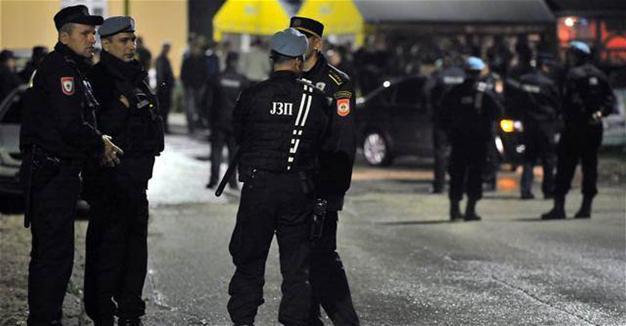Center-right Bosnian party hails win in local elections
BELGRADE

AFP Photo
A coalition of the Party of Democratic Action (SDA) and the Alliance for a Better Future of Bosnia (SBB) won the seventh local elections in Bosnia with 34 mayoral offices, the election commission announced on Oct. 2.Meanwhile, Croatian Democratic Union of Bosnia (HDZ BiH) won 18 mayoral offices while the Social Democratic Party (SDP) won eight, according to unofficial preliminary results.
A total number of 1,723,140 voters, or 53.88 percent of the electorate, cast votes during the local elections, state-run Anadolu Agency quoted Central Election Commission head Ahmet Santic as saying.
Voting was canceled in the southern city of Stolac because of a confrontation between the mayoral candidate and members of the election commission, Santic said at a news conference earlier.
“At around noon, the candidate came to the polling station where he physically attacked the chief of the commission and two people. Two members of the commission were taken to the emergency room after the attack,” he said.
Meanwhile, elections could not be held in the “most divided” city of Mostar.
Because of a statute issued in the city, local elections were not held in there in 2012 as they were 2008. Leaders of both sides failed to reach an agreement in Bosnia’s House of Representatives, eventually paving the way for the Constitutional Court to declare that the city’s electoral statute was unconstitutional. As a result, the municipality has been without a city council since 2012 – a situation that has created severe management issues.
Meanwhile, the town of Srebrenica, known for the wartime massacre of 8,000 Muslims by Serb forces, looked set to get its first Serb mayor in 17 years, AFP reported.
Based on a preliminary vote count in Srebrenica, 34-year-old Mladen Grujicic declared victory over his Muslim opponent and said people had shown “they want changes.”
If confirmed, Grujicic’s victory would make him the town’s first Serb leader since 1999, although his rival and the incumbent mayor, Camil Durakovic, said it was too soon to declare as postal votes had not yet been counted.
Srebrenica today is a microcosm of Bosnia, with Muslims and Serbs living side by side but by no means together – still distrustful more than two decades after Bosnia’s 1992-1995 war, which claimed 100,000 lives and displaced 2 million people.
Grujicic made assurances that the town hall would continue to help commemorate July 11, 1995 – the date of Europe’s worst massacre since World War II.
In the mass slaughter – deemed genocide by two international courts – Bosnian Serb forces carried out the executions of thousands of Muslim men and boys, despite the enclave being under U.N. protection.
“I want us to turn the page in Srebrenica, to have a new life, to look ahead, to develop Srebrenica in all areas, to ensure that people stay here, regardless of their faith or ethnicity,” said Grujicic.
















